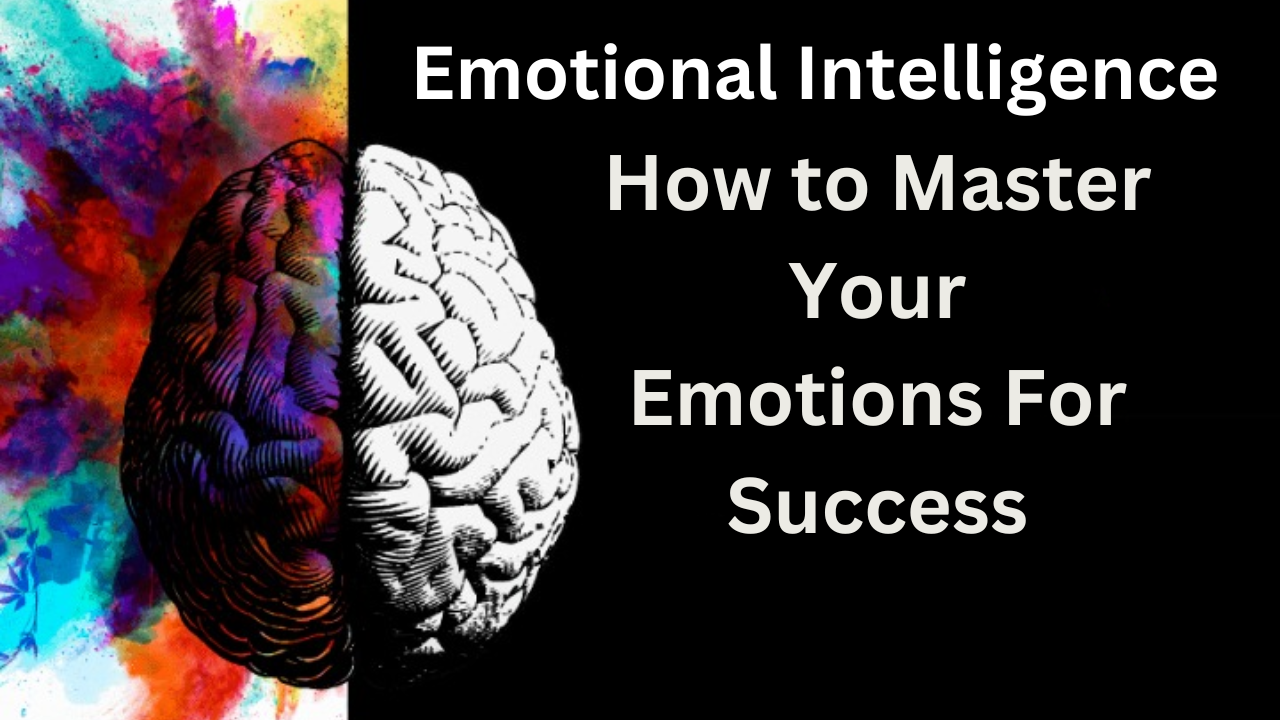
Emotional Intelligence | How to Master Your Emotions for Success:
One of the most important components for both professional and personal success in the modern world is emotional intelligence (EI) also known as emotional quotient (EQ). While IQ a measure of traditional intelligence concentrates on cognitive skills like memory logical reasoning and problem-solving emotional intelligence explores how well people control their emotions and deal with social complexity. This special type of intelligence is crucial for resilience in decision-making and general mental health in addition to influencing interpersonal relationships.
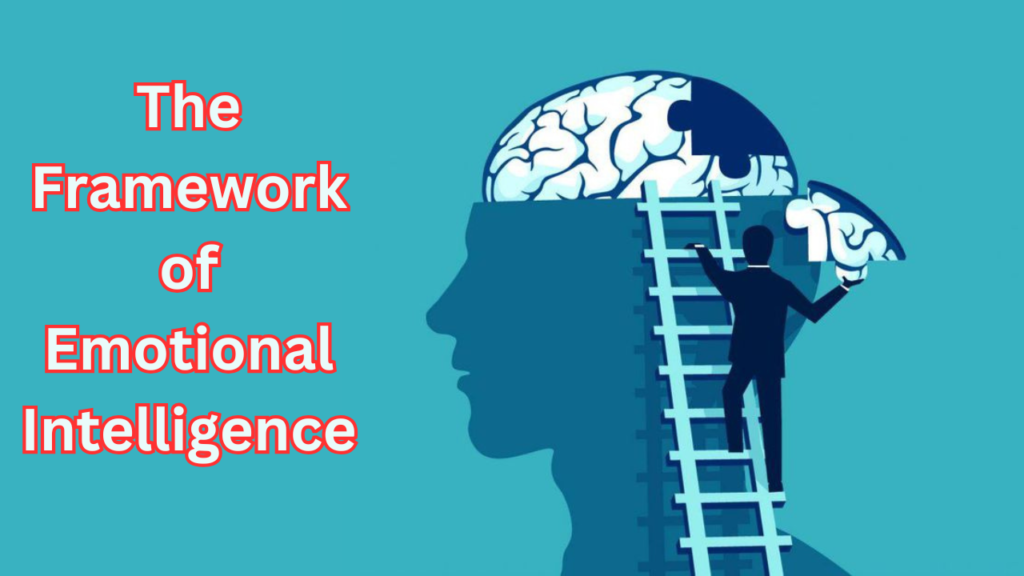
The Framework of Emotional Intelligence:
With his book Emotional Intelligence: Why It Can Matter More Than IQ psychologist Daniel Goleman popularized the idea of emotional intelligence in the 1990s. Self-awareness self-regulation motivation empathy and social skills are all components of emotional intelligence according to Goleman. In contrast to IQ which is largely constant throughout life emotional intelligence is something that can be improved. Emotional mastery is more than just managing your anger or sadness it’s about developing a deep understanding of both yourself and other people to promote success growth and harmony.
Self-Awareness: The Foundation of Emotional Intelligence
The journey to mastering emotions begins with self-awareness. Self-awareness involves recognizing and understanding your emotions as they arise. This level of consciousness enables you to discern how your feelings influence your behavior, thoughts, and interactions with others. For example, a person who feels frustrated at work might unconsciously project their irritation onto colleagues. However, someone with high self-awareness would recognize their frustration and channel it productively, such as by taking a short break or addressing the source of the problem constructively. Journaling, mindfulness, and seeking feedback from others are effective ways to enhance self-awareness. Through consistent practice, individuals become better equipped to identify emotional triggers and respond thoughtfully rather than react impulsively.
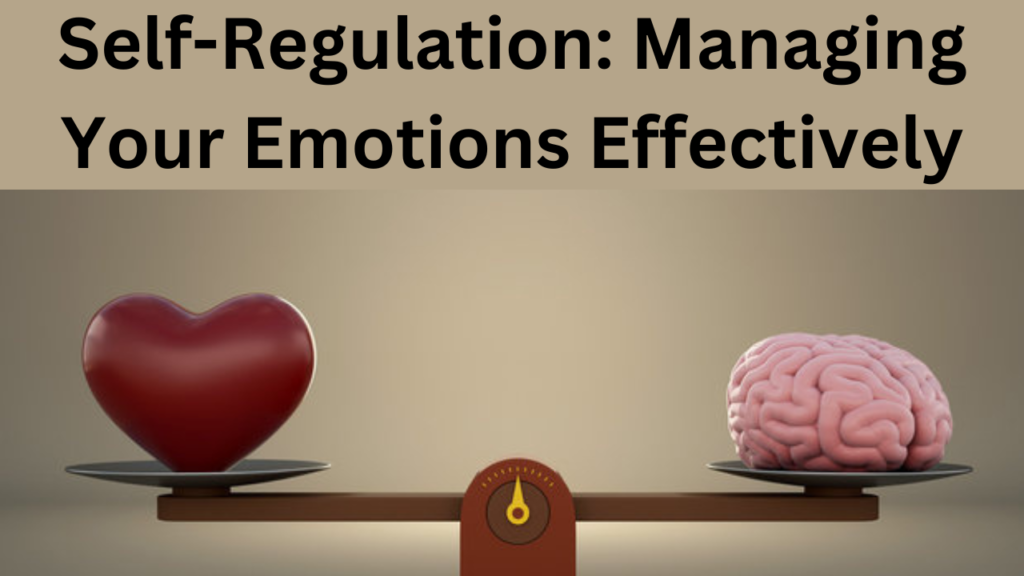
Self-Regulation: Managing Your Emotions Effectively:
Effectively controlling and managing your emotions is known as self-regulation and it is closely related to self-awareness. Although feeling angry disappointed or anxious is normal how you respond to these feelings defines your emotional intelligence. Self-regulation is recognizing your emotions and reacting in ways that are consistent with your values and objectives not repressing or ignoring them. For example, a person with strong self-regulation would listen to criticism without becoming defensive or dismissive consider the feedback, and take appropriate action. People can manage stress and remain composed under pressure by using strategies like deep breathing meditation and cognitive reframing.
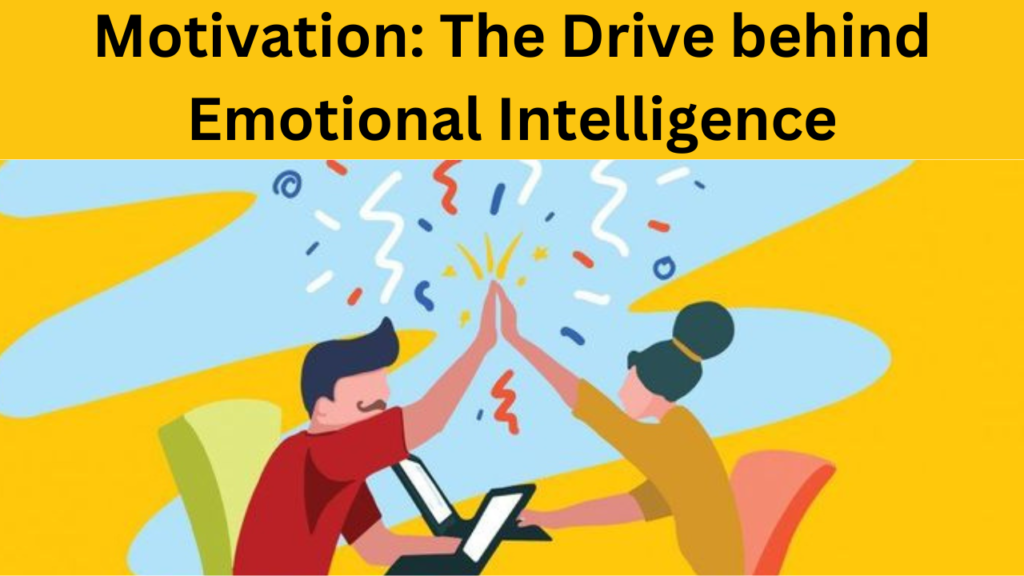
Motivation: The Drive behind Emotional Intelligence:
An additional pillar of emotional intelligence is motivation. One of the characteristics of emotionally intelligent people is intrinsic motivation or the desire to pursue objectives for one’s fulfillment rather than for benefits from outside sources. Even when faced with obstacles they have a propensity to approach problems with hope and tenacity. Developing motivation entails establishing specific meaningful objectives and decomposing them into doable tasks. Appreciating minor triumphs along the route increases momentum and creates a sense of accomplishment. Additionally sustaining a growth mindset encourages resilience and sustains motivation in the face of adversity by emphasizing learning and progress.
Empathy: Strengthening Connections with Others:
Empathy, the ability to understand and share the feelings of others, is a fundamental component of emotional intelligence that strengthens interpersonal relationships. Empathy goes beyond merely sympathizing with someone; it requires active listening and putting oneself in another person’s shoes. This skill is particularly valuable in leadership and team settings, where understanding diverse perspectives can lead to better collaboration and problem-solving. Developing empathy involves practicing patience, observing nonverbal cues, and being genuinely curious about others’ experiences. By fostering empathy, individuals create a supportive and inclusive environment that nurtures trust and mutual respect.
Social Skills: Building Relationships and Resolving Conflicts:
Effective communication conflict resolution and rapport-building are just a few of the skills that make up social skills the last pillar of emotional intelligence. People with strong social skills can interact with others manage group dynamics and have a positive impact on relationships. These abilities translate into productive teamwork networking and leadership in work environments. Improving social skills necessitates practicing diplomacy improving communication skills and actively interacting with others. For instance, when resolving conflicts concentrating on the problem rather than the individual encourages productive discussion and eases tension.
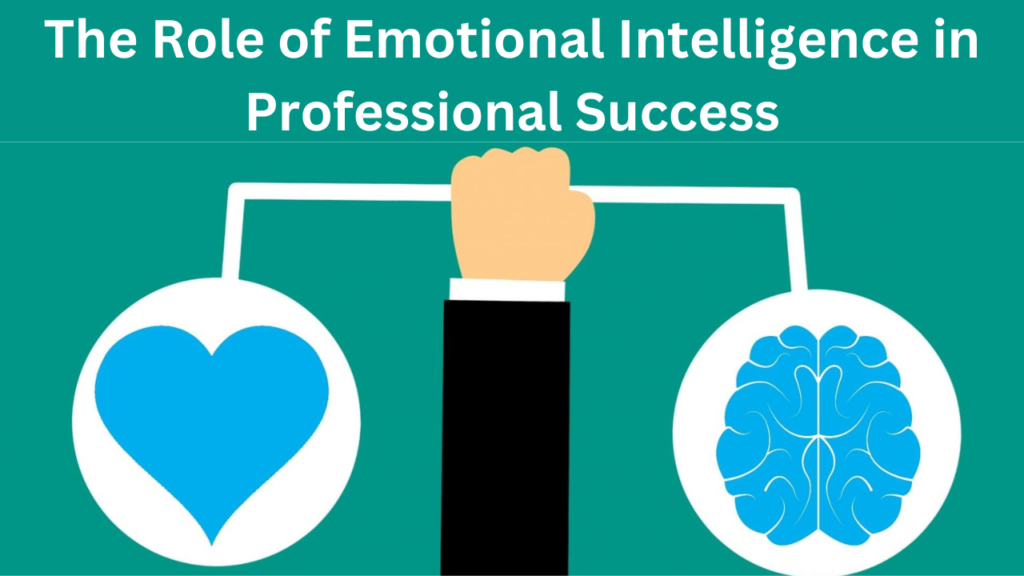
The Role of Emotional Intelligence in Professional Success:
Gaining success in a variety of areas of life is significantly impacted by developing emotional intelligence. It is becoming more widely acknowledged in the workplace as a crucial factor in determining team performance and leadership efficacy. Emotionally intelligent leaders encourage cooperation build trust and respond resiliently to setbacks.
By recognizing each person’s needs and strengths they are adept at leading diverse teams and fostering a positive productive work atmosphere. Emotionally intelligent workers are valuable assets in any organization because they improve flexibility problem-solving skills and the capacity to take constructive criticism.
Emotional Intelligence and Personal Well-Being:
Emotional intelligence has a big impact on relationships and general well-being in addition to career success. Due to their ability to communicate honestly and settle disputes amicably emotionally intelligent people typically build stronger more meaningful relationships with others.
At this stage of emotional development people learn to manage their emotions without becoming overwhelmed which also leads to increased self-acceptance and decreased stress. They build a happy and balanced life by cultivating a positive emotional environment in both their relationships and themselves.
Developing Emotional Intelligence: A Lifelong Commitment:
Developing emotional intelligence is a continuous process that calls for dedication and introspection. It entails being open to vulnerability and taking lessons from all experiences even the difficult or uncomfortable ones. Insights and inspiration can also be gained by surrounding oneself with encouraging mentor friends or coworkers who exhibit emotional intelligence. Additionally incorporating techniques like mindfulness consistent self-evaluation and asking for helpful criticism can hasten progress in this area.
It is impossible to overestimate the significance of emotional intelligence in the connected world of today where technology frequently eclipses interpersonal communication. Even though technical know-how and abilities are still crucial they are not enough to succeed in intricate social settings. By giving people the skills to manage relationships make wise decisions and lead satisfying lives emotional intelligence helps close this gap. Investing in emotional intelligence is becoming not only desirable but also necessary as soft skills and emotional resilience are valued more and more in the workplace.
Conclusion:
In conclusion, emotional intelligence is a powerful tool for mastering emotions and achieving success. By enhancing self-awareness, practicing self-regulation, cultivating intrinsic motivation, developing empathy, and refining social skills, individuals can unlock their full potential and create a positive impact on those around them. Whether in personal relationships, professional endeavors, or individual growth, emotional intelligence serves as a guiding compass, steering us toward meaningful and rewarding outcomes. The journey toward emotional mastery is not without its challenges, but the rewards it offers in terms of resilience, connection, and fulfillment make it an endeavor worth pursuing.